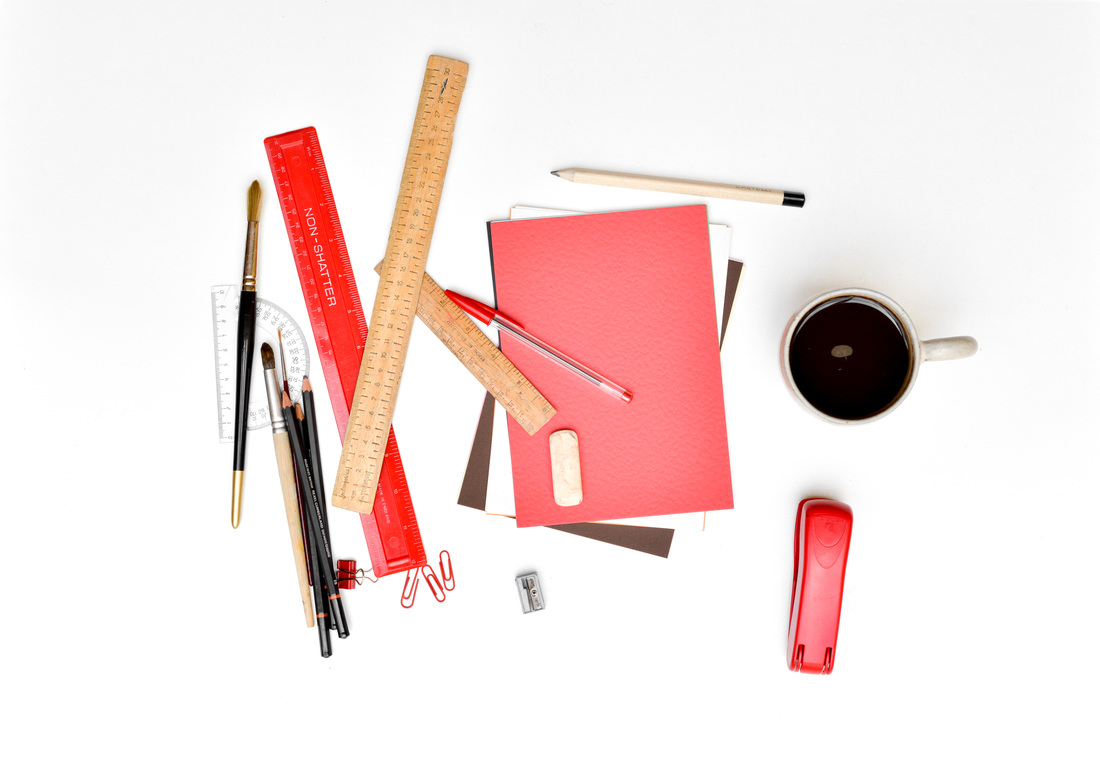|
Though the inspiration to write hasn't been present the last few months, I have been doing a LOT of reading and listening. Here are a few tools from my exploration that I want to share with you. Enjoy!
Podcast: Beautiful Writers Podcast - The interviewers are kooky and fun. They bring on guests I've listened to before, like Seth Godin or Brene Brown, but there's a quality to the Q&A that always leaves me inspired. (ht Caroline Sheahan). Article: The "Adaptable Leader" is the new Holy Grail - Become One, Hire One - I'm a big fan of First Round Review because I can really interact with their articles. It's hard to just read their material without working through the thoughtful questions that change the way you think and approach problems. Book: Reinventing Organizations: A Guide to Creating Organizations Inspired by the Next Stage of Human Consciousness - This book is fascinating, and a must-read for anyone working in the corporate world. Based on the premise that most people are good apples, not bad, the book goes on to show a variety of successful companies that have adopted flexible work environments that truly put employees first. In fact, if you want to categorize your company, check out What Color Is Your Organization? App: Bodyweight Training: You Are Your Own Gym - I used this app on and off over the last year, but earnestly got into it just before the Holidays last year. The "Quick Workouts" are fast, but far from easy, and I've done the 12-minute workout 82 out of the last 90 days. I don't get exhausted, and instead feel stronger and more energized. If you have any questions or comments about any of the resources above, just email me. A Simple Habit To Stay Level-Headed
Take 5 deep breaths during transitions in your day. What are transitions? Every time you go from home to work, work to home, lunch to work, work to lunch, meeting to office, meeting to meeting, and other moments when you shift from one mindset to another represents a transition. In fact, an even simpler way to define transitions is when you're "on the go" or when you feel like you are. Our go-go-go mentality rarely lets our attentive mind take a break. Rather, it's wired to look for even more things to pay attention to, like checking email, social media, news etc. And most of us operate on the belief that we're more productive because we complete tasks on the go. That may be true, but how do you feel at the end of the day? How energized or exhausted are you? How much caffeine do you need to maintain that level of alertness? And how much of a crash do you feel later? Mindfulness is about balanced productivity Taking those 5 deep breaths during transitions is a simple start.
Mindfulness, especially when it's used in the work setting, can have phenomenal benefits:
An Online Course on Developing Mindful Habits I'm teaching a 4-week online course in mid-January on Developing Mindful Habits. You'll learn mindful habits that will actually keep you calm, cool, and collected. The early bird discount ends tomorrow so take a look today. What's Behind Saying "No"?
Recently, people have been talking about how to say "no" to potential connections like coffee invites or phone intros so you can stay focused on what you're doing. Saying "no" to possibilities - for work, collaboration, friendship, etc. - may limit our growth, but our busy calendars limit our time, leaving little choice but to filter options. "No" may be a symptom of a greater underlying problem - a lack of boundaries. Defining What's "Enough" We all need boundaries, in terms of defining what is "enough" for us. This goes beyond meetings to our work too. Going past the point of "enough" can be personally detrimental. Do you know when you have worked enough and need to stop? Do you know when your calendar is getting too filled and you need to stop adding to it? Knowing when to stop gives you the opportunity for a break, for alone time or an outing with someone. Now, saying "no" is less a reaction and more a conscious response. On the other hand, when you don't define what's enough for you, the prefix, "over", gets used a lot. You feel:
The list goes on. If you don't know your boundary, it gets defined for you, and you only learn of it after the fact. Then, you have to work a little harder to fix it. How To Set Boundaries Defining boundaries starts with saying "yes" to yourself. Look at your calendar and note how many items represent what you really want to do versus what you're doing for others (employer, business partner, colleague, etc.). Take an upcoming week and for each day, count the items that are for "yourself" and items that are for "others". On those days when items for "others" are greater than items for "yourself", either remove one of the "others" items or add a "yourself" item. This simple action allows you to define personal balance very specifically, prioritizing your interests and how you want to most want to spend your time. It's your time after all, even if you're renting it to an employer or client. How are you going to enjoy it? Balance = Energy Now, if someone invites you for a coffee or phone intro, instead of saying "no" outright because you're busy, you can make an intentional decision based on how you want to balance your day or week. You'll feel more energized either way, because you're planning by saying "yes" to the things you care about. Sometimes that's work you want to focus on and other times it's new connections you hope to pursue. Acting from a place of personal balance is additive, because regret, guilt, or "should" don't play into your decision. Saying "no" or "yes" is no longer an opportunity cost, it's just an opportunity. -- What boundaries have you set for yourself? Have you defined "enough" for your work, meetings, personal time? Share your thoughts with me over email. (These emails only come to me and are never shared with others. In fact, they often help me come up with ideas for future posts I can share with a broader audience.) "Sometimes I sits and thinks, and sometimes I just sits." --Satchel Paige Self-Reflection Made Easy
The most long-lasting and powerful way to develop deep personal insights is through self-reflection, finding quiet time you can set aside to think or just be for a few minutes. This is easier said than done in our fast-paced, information-heavy, overly-busy modern world. Why would you spend valuable time doing nothing? Here are a few reasons:
Down time is incredible, but difficult for many to incorporate into their lives. And though I'm being light-hearted, I'm very serious about how it can improve your day-to-day life. This is why I want to make it easier to practice regularly. Meditation, Journaling & Group Dialog Over the last few months, I've been testing what I'm calling the "Insight Club." Nine motivated and interested people have helped me to develop a forum for self-reflection, including meditation, journaling, and group dialog. Starting today, I'm opening it up to everyone. Go here to join. The Insight Club includes:
This is entirely FREE! Self-reflection can't be bought, but it doesn't come cheap in terms of effort. It requires a little work on your part. You have to show up! I started this to make it easier for you to start. So you have a place to go. I'm inviting you into my personal practice. It's completely up to you how much you put into it. You can join any time and partake in any part of the Club, though the benefits of being "all in" will open up parts of yourself you didn't know were there, and you will discover creativity, productivity, and resilience. Try it for 2 weeks. Sign up here and you'll receive a "How To" guide with dial-in information and details about the journaling to get you started. What participants have gotten out of the Insight Club "The hum on the phone is audible, I can feel everyone meditating with me!" "I have a better perspective on others and myself. I journal every so often during the week, but feel like I'm more aware of my blind spots. "I don't know what's blocking me sometimes, and this gives me clarity." Now it's your turn: What's stopping you from taking 5-10 minutes out of your day to sit or think? If you are too busy, then in fact, are you too busy? How can you develop a routine or a toolkit to reflect on your day? Learn more about the Insight Club and try it out to see if it works for you. At the least, you'll learn something you can practice on your own. "Getting Hooked" on Phones
About 80% of smartphone owners check their devices within 15 minutes of waking up! This probably isn't a surprise to you, especially if you use your smartphone as an alarm clock. It's too easy to tap on the mail app on the bright front page of your phone as you turn off your alarm. Does this sound familiar? Do you know why you're doing it? Are you in control or has it become a craving that must be satisfied? A recent article in the Economist, called Getting Hooked, alerts us to why it's not necessarily your fault or that you may not even feel bad about these phone habits. There are companies specifically creating products to vie for your attention, at all times of the day. "Behavior Designers" is an official job title in digital product companies. Email and social media are part of our modern culture, but when and how we choose to partake is up to us. Understanding ways companies aim to re-habituate you makes you alert to the choices you have, and can also teach you how to build better habits. Click on the link above to read a more detailed essay on how technology companies are getting into our heads, and what choice we have in the matter. Free Half-hour Coaching Session I have had 3 very-fulfilling free coaching sessions and have another 2 scheduled this week. If you are interested in a 1/2 hour private phone coaching session, simply email me with 3 dates/times that work for you. More details below: I am offering a no-strings-attached FREE half-hour online or phone coaching session for the New Year. Simply reply to this email to schedule a time in December or January (more details below). This is completely open-ended. You can choose to discuss any topic that you like. Here are a few suggestions to get you started:
These are just a few examples, but you can be as specific as you like. I use principles from psychology, personal development, and mindfulness during sessions with my paid clients, and this will be no different. Schedule a Time Here is how to sign up. Email me with three dates and times that work for you within the following time frames:
This offer is open from now till the end of January. Please forward this to a friend or colleague who you think might benefit! Here is what others have said about my teaching: "Akshay provided simple and clear methods I can easily incorporate into my life to relieve stress and increase productivity." "I am confident that I am NOW a better person and well on my way towards where I want to be in my life. Akshay's coaching methods have been helpful professionally and personally in tandem." "Akshay is adept at explaining the meaning behind some esoteric terms and conveying how they relate to everyday life." Being Interrupted
What happens when you're in the middle of something, and someone comes over and asks you a question? How do you react? How do you view it? Qualify it? Label it? Is it an interruption? A curiosity? An opportunity? An urgency? An annoyance? A disruption? A welcome? Perhaps unexpected, but now it is a real change in what you were doing and what you are doing now. A transition to something new. Seeing An Opportunity And now you are creating this moment in your own fashion. You're a producer, a director, and an actor at once. Creating the narrative in your own play. Are you not always creating? Creating your schedule, your reports, your writing, your emails, your email-checking, your weekend, your excitement, your goals, your plans, your friendships, your ideas, your happiness, your judgments, your vision, your thoughts, your confusion, your love, your habits, your moments? Creating An Outcome You are creating with others and your environment. In sync with the people, the places and all the things you may not even notice, like the shifting weather, the noise of the traffic, the colors of the buildings, the quality of the oxygen, or the culture of your town, state, or country. You move with it. You own the direction of your attention by knowing you are creating it. Right now. In every moment. What are you creating? Now? And now? And now? X-hour Energy
Have you seen the new 5-hour energy ad? It promises all the benefits mindfulness does. Clarity + alertness, being in the zone, owning the moment. When I first saw it, I thought, "Wow, that's what I would say about mindfulness!" And a little red bottle of liquid can give you all that? But to what end? The ad doesn't tell you that. What are you going to do with all that energy? How are you going to use that powered-up version of yourself? What more will you do now that you can do more of it? The obvious problem here is dependency, but the deeper, more sinister, hidden problem is not knowing where your energy comes from and seeking an outside source as a substitute. Mistaking The Source of Energy Why is it that lottery winners sometimes go bankrupt in a few years? Or become depressed? What do they do when the craving is immediately satisfied? Shop, travel, splurge on the things they always wished they could have. And then what? They do it some more. And then what? Maybe a little more. And it keeps going until they don't have any money or they don't know what to do with it. The money represents a desire, a wish, an aspiration, a craving and when it's gone, there is nothing there to replace it. They got everything they wanted at the expense of wanting everything, which is much more important. The drive is more interesting than the outcome. Defining What Drives You Defining what you will do with all the productivity is what makes you productive. Deciding why you seek clarity will make things more clear. 5-hour energy is enticing because it represents instant fulfillment, but like the lottery winner, will you know what to do once you are fulfilled? How will you know if it's enough? What will fulfill you next? Mindfulness is not about the promise of X amount of energy. It's about understanding your self and your purpose, because energy alone doesn't have a driver. It's not energy that drives you, your drive energizes you. Shifting the focus to what end you seek energy is exactly what will give you the energy you seek. This is not a zen puzzle. It's another angle from which you allow yourself to see what you do day in and day out. Pay attention to those areas in your life which energize you without you pushing yourself. What kind of people, music, art, thoughts, food, drink, writing, theater, movies, nature, exercise get you going? When you learn what moves you, only then can you push the accelerator. Only then will you be filled with the right amount of energy to do what you believe needs to get done. Does that make sense? Please share your thoughts! |
Coaching Consulting
|






 RSS Feed
RSS Feed